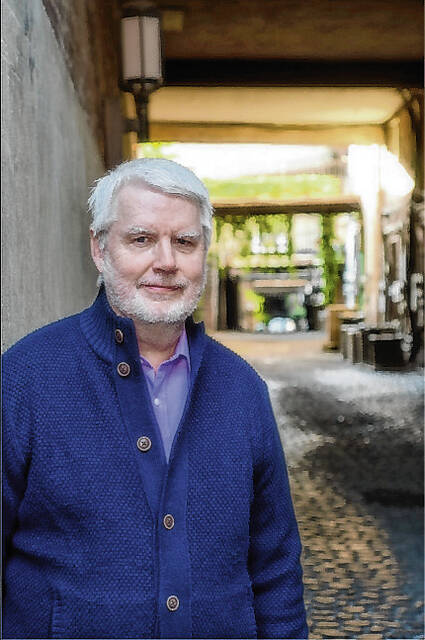Ukraine might seem far away from central Indiana, so when Putin’s war began, we could, if we wanted, ignore the tragedy that has fallen on that country.
But no one who has filled up at a gas station or shopped in a grocery store in the last weeks can ignore the connection that exists between Ukraine, the cities and towns of central Indiana, and the rest of the world.
When his invasion began, Putin was under the illusion that if he struck boldly and decisively, the rest of the world might cry “foul” for a few days but would do little else to thwart his ambitions.
Putin knows better now, and so do the Russian people.
A month ago, an evening in St. Petersburg or Moscow would have been much like an evening in central Indiana. After a long day at work, a Russian family could have looked forward to a pleasant evening. After stopping at an ATM for cash, they could have gone through the drive-through at McDonald’s for burgers and cokes, then stopped at Starbucks on the way home. Once lounging in their living rooms, they could have watched on TV Russian athletes compete in the Paralympics, a soccer match between Russia and another country, or a concert from Vienna featuring Russian soloists.
Life in Russia today offers none of that—no cash at an ATM, no burgers and cokes at McDonald’s, no coffee from Starbucks, and no international sports and concerts on TV. The lights are still on in Russia, but they illumine a pretty bleak scene.
But if Putin underestimated the impact of the invasion of Ukraine on his own people, he accurately knew that sanctions against his country would cause suffering in the rest of the world. In fact, that seems to be what Putin was counting on, that people in Western democracies would choose their comfortable lifestyles over the suffering in Ukraine.
We still don’t know if Putin’s cynical assumption will be proven right. Will we prefer our comforts to sacrifice for the sake of Ukraine? I am not asking this question of those in our country and in the world who live near or below the poverty line. Their suffering will only increase because of higher prices for gas, food, and heating oil. Their cries are legitimate, and they will need even more aid from their governments and international charities to survive.
But how will those of us who have economic security respond? At this very minute, Putin has his ear to the ground, hoping to hear us whining and complaining to our political representatives and to call-in radio hosts that we shouldn’t have to put up with higher prices.
The question, “Why should we suffer because of Ukraine?” is a version of the ancient question, “Am I my brother’s keeper?” Sadly, the war in Ukraine is already creating another divide in our country. On one side are people who complain about every penny added to the price of a gallon of gas and rail that they can’t afford to eat out as much as they used to. These are the people who are saying, “This is not my war.”
People on the other side will also “suffer,” if “suffer” is the right word for the sacrifices we are being called to make. These people will also notice every uptick in the price of nearly everything, but instead of griping and complaining, they will take those moments as opportunities to remember and say a prayer for Ukrainians who are fighting and dying to preserve their democracy and their nation’s sovereignty.
It is these people around the world who will join with the people of Ukraine in defeating Putin. These are the people who are saying, “This is our war, too.”





